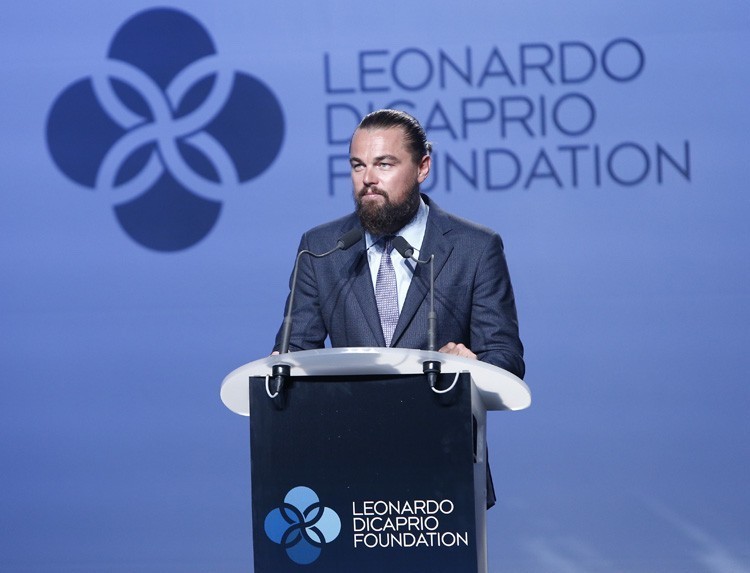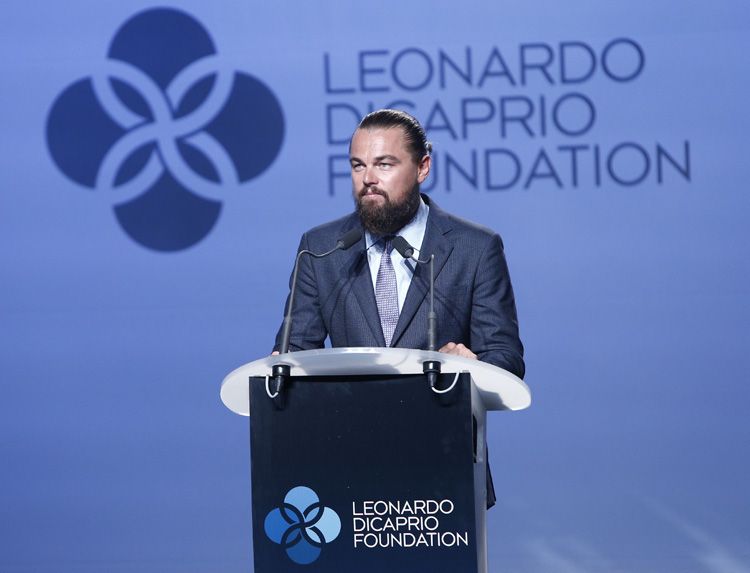
Leonardo DiCaprio Foundation’s Annual Gala to Fund Climate and Biodiversity Projects

The Leonardo DiCaprio Foundation announced today its third annual gala at the Domaine Bertaud Belieu vineyard in St. Tropez, France on July 20.
The major charity event raises funds to protect Earth’s last wild place, implement solutions that restore balance to threatened ecosystems and ensure the long-term health and wellbeing of all its inhabitants.

This year’s occasion will be co-hosted by the Oscar-winning actor and noted environmentalist Leonardo DiCaprio, the foundation’s global chair Milutin Gatsby and chief executive officer Terry Tamminen.
Event chairs include Hollywood A-listers, environmentalists and prominent businessmen and women such as Cate Blanchett, Marion Cotillard, Boris Collardi, Philippe Cousteau, Jr., Penelope Cruz, Robert De Niro, Jonah Hill, Kate Hudson, Scarlett Johansson, Tobey Maguire, Edward Norton, Caroline Scheufele, Arnold Schwarzenegger, Kevin Spacey and Charlize Theron.
This year’s event will honor H.S.H. Prince Albert II of Monaco for his legacy of environmental conservation and include performances by The Weeknd, Lana Del Rey and special guest Andrea Bocelli.
DiCaprio’s eponymous foundation was founded in 1998 and works in four key areas: protecting biodiversity, oceans conservation, wildlands conservations and climate change. The organization supports more than 70 environmental projects across 40-plus countries and five oceans through close collaborative partnerships with environmental leaders, experts and organizations.
For instance, the philanthropic organization has donated more than $6.2 million to the World Wildlife Fund since 2010 to help boost the global population of wild tigers. The foundation also supports local partners in Sumatra to establish “a mega-fauna sanctuary in the Leuser Ecosystem,” which is known as the last place on Earth where Sumatran orangutans, tigers, rhinos and elephants coexist in the wild, and is under threat from industrial development of palm oil. Without protection, these wildlife species are likely to be pushed to extinction.
Last year’s star-studded gala raised a staggering $40 million, nearly doubling the $25 million raised in the first year. The 2015 event featured a high-priced live auction that opened with DiCaprio’s personal items up for bid: a Rolex Daytona Cosmograph watch, and Andy Warhol and Bansky artworks from his personal collection. DiCaprio’s donations raised close to $2 million.
“Tonight’s event is about supporting Leonardo DiCaprio Foundation’s efforts to protect key species like the tiger, rhino, shark and mountain gorilla by working with governments to conserve the jungles, coral reefs and forests they call home,” DiCaprio said in his opening speech at last year’s soirée.
“By focusing on protecting these critically-endangered iconic species is almost like setting up a worldwide network of Noahs arks. We’ve decimated our forests, wildlands, polluted and over fished our rivers and oceans; all the key ecosystems that not only serve as a home to our planet’s biodiversity, but also make life here for us possible. I’m incredibly proud to be part of a night that will allow us to do so much to protect the planet.”
The Revenant star and his foundation have advocated for a number of worthy causes to help preserve our environment. Last month, following the April signing of the Paris agreement, the Leonardo DiCaprio Foundation announced a $650,000 grant to R20 Regions of Climate Action, a project that aims to rapidly identify renewable energy, energy efficiency and waste management initiatives to bring positive environmental and social benefits to communities across the globe and ultimately reduce carbon emissions.
YOU MIGHT ALSO LIKE
7 Things You Should Do After Watching ‘How to Let Go of the World’
Boyan Slat’s Ocean Cleanup Project Launches Historic First Prototype at Sea
Drought Kills 66 Million Trees in California, Increasing Risk of Catastrophic Wildfires
It’s Not Just Crimes Against Nature, It’s Crimes Against People

 233k
233k  41k
41k  Subscribe
Subscribe 